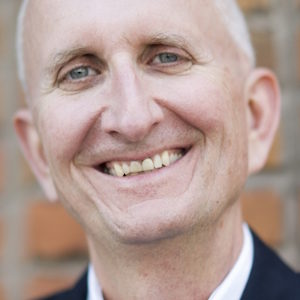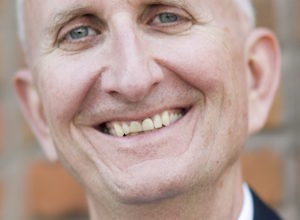
Poetry is an important part of Brad Byrum’s life. He remembers his grandmother reading poetry to him, but the real connection came about twenty years ago as part of his adult spiritual journey when he realized that language is inadequate to capture the depth of what we experience in our lives. His realization that poetry moves from expression to silence parallels the active expression of life to the silence of death.
Brad, a longtime participant in the Zen Hospice Community, explains hospice as a time at the end of one’s life going from seeking curative medical help to palliative. It is a time to bring closure to one’s life with the recognition that there is no more possibility for a cure. Focus shifts to comfort, and finding a way to be as fully present as we can with as little pain so we can engage with those we love. Letting go is not something that happens once and for all – it happens progressive. The capacity to let go of life comes in stages.
Brad acknowledges that the process of dying is fraught with a loneliness that comes unintentionally with loved ones withdrawing from those whose life is ebbing because there is fear around the pain of death. Brad helps create space to realize that we are, each of us, impermanent but living in a larger permanence. Do we need to pay the same attention to those leaving this world as those coming into this world? No one turns away from a birth, but death, fraught with fear and disbelief. No matter how we might be expecting a death, that last breath is always a shock because, as Brad says, “We are so deeply connected to being alive. What a gift it is to be alive. Sheer gift. Working with people at the end of life has taught me to be appreciative of life. It has not made me less afraid but deeply respectful of the gift of being alive. Focusing on our impermanence, when we are aware of being impermanent, the paradox is that we become more alive. We become more aware of the gift of being alive. That is one of the ways the work in a hospice spills over into a much broader appreciation of our shared human experience. Death is a profoundly private moment. There is a sense of being connected right to the last breath. After the last breath you step into the mystery.”
Can people choose their own moment to die? Brad sees that happen over and over. He says that the dying, in their very last moments, are entering a deep meditative place and working very hard in that space to move where they need to move. He sees people in a profoundly deep state, no verbal communication, eyes often closed, and it seems they are gone. Their breathing changes, heart rate changes, so it appears often that there is nothing going on, but, as Brad says, “They are working very hard in this space to go to where they need to be. It can be, for some people, waiting for someone to come say goodbye. Or waiting for someone to leave the room. He has seen family gathered around the bed and when they step out of the room and the dying person takes their last breath, they lament, ‘We should not have left.’ I tell them they did exactly the right thing.”
Love letters” Yes. the Zen Hospice Project has volunteers who help residents write letters. Yes, even close to your last breath, you can send something that has felt the touch of your hand to last through generations to come. Until your last breath you have that power to say, “I love you.” “I forgive you.” “Please forgive me.” “Thank you.” “Goodbye.” To feel you have been loved, Brad points out, is the essence of what it means to be alive at the end of life. Brad Byrum, brings his own poetic nature, loving spirit, intelligent compassion, understanding of death as a hard-won passage, and enthusiasm for the entire process of life to the reality of dying. Listening to Brad Byrum talk about what is, without doubt, our most mysterious transition is a beautiful lesson in how to approach those we love in their last moments.
